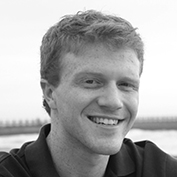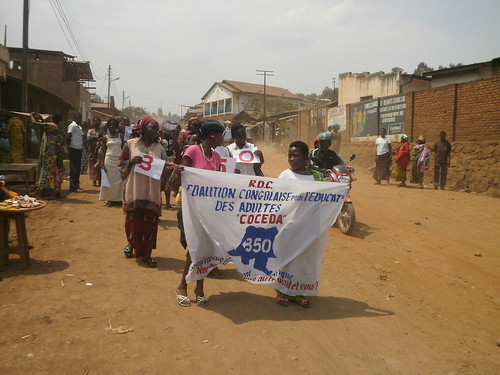A Conversation with the Climate Crisis
Tim Hall | December 7, 2010.
Last Friday I had a conversation with a man from the Congo which, I can already say, has changed my life.
Tired, hungry and lonely, after a long day at the COP16 Climate Change negotiations, I made my way to nearby bar to have something to eat before a long night of writing.
Next to me sat another lonely soul having a late night feed. I could tell by his suit and security pass that he was also a Climate Conference Gringo in Cancun.
His name was Jean, and despite being from the Congo referred to himself with a laugh as a Frenchman. We started talking about the day and our impressions of the conference.
“There will be a deal, because there has to be a deal,” he asserted, but shortly after conceded that negotiations weren’t going along as he had hoped. But, he said, the spirit was much better than in Copenhagen last year.
“Plus the sun is nicer,” he laughed as we compared Cancun to Copenhagen.
He was trained as a lawyer, and had attended the last three UN climate change negotiations representing the Democratic Republic of Congo.
Since 1997 the Congo has been plagued by conflict. Even today violence lingers. As a result of the fighting, and the disease and famine, it is estimated up to five and half million people have been killed. Men are expected to live just to the age of 47, women to the age of 50.
As a result, the DRC is still ravaged by poverty. Its seventy million people endure through poverty with the lowest GDP per capita in the world.
Although you wouldn’t have guessed that based on Jean’s behavior. Our conversation continued as we started buying each other round after round.
He spoke of the impact of climate change in the Congo. He pushed through the language barrier and told me in vivid detail the beauty of the immense Congo rainforests. It’s rainforests are second largest in the world, rich in unique biodiversity and essential to the world’s carbon cycle.
Much like its forests, the Congo as a whole is also rich in resources. Jean’s eyes turned dark when the topic turned to the civil war and continued violence.
“War cannot be separated from resource exploitation,” he asserted, “natural resources – diamonds, water, minerals and metals –give power.”
“They give power through money, and bring death to the innocent.”
He sat silent for a moment, contemplating his words as he looked at his beer. His eyes had grown red around the rims, and his smile had faded. Then he turned to me, and I knew this conversation was no longer just about aesthetics of forests.
“Climate change is not about the earth warming. It is your nations, your markets, your decisions changing my nation, taking our resources, limiting our decisions and hurting my people.”
What followed has changed the way I see the world.
I heard about how almost three-quarters of the Congo’s sixty-seven million people rely on agriculture and non-timber forest activities. Extreme and changing weather patterns are causing hardship to these people. With average income per annum being only $160, these people already have little capacity to deal with any crisis. How are they supposed to deal with the most powerful crisis the world has ever faced?
I heard how farming systems and freshwater structures are being destroyed by floods. These systems have worked for hundreds of years and were designed around their climate. Now the climate is changing too quickly for these systems to keep up, leaving the people vulnerable to shortages, disease outbreaks and further poverty.
I heard how foreign markets are driving up prices on finite resources in the Congo, which have been mined out of existence elsewhere. This resource demand helps finance the ongoing violence and tension in the Congo.
I heard how Jean’s income goes to support his much poorer siblings and cousins, who have migrated away from their agricultural lifestyle due to inconsistent weather patterns and increasing poverty. They now live as environmental refugees, unemployed in the capital city Kinshasa.
None of this was new to me. I had heard it all before on television, read it in books, studied it in university. I had been involved in thorough and robust discussions on all this – I had even done well on a few assignments on it.
But now I was hearing it from someone who was feeling it. It was now right in my face, the unavoidable truth of climate change.
Acting on climate change had always seemed the ethical thing to do. It also seemed the efficient, economically wise thing to do. It was in my interests. Future me would benefit, and the environment of Australia would remain lovely.
Now I saw it was still all of these things – but it was also the fair thing to do. Fair to Jean and the vulnerable people in the Congo. Reducing my emissions, controlling my consumption and thinking beyond my countries wealthy borders were not just good for the environment, they were essential for human life. If I continued driving my car to university every day, increasing my consumption based on short terms desires and only thinking about Australia’s interests – if everyone continued with business as usual – billions of people, including Jean and his family, would be at risk.
Every decision I now make, I will think of that conversation with Jean. Climate change for me is a long term issue. Climate change for him was a daily fight for survival by his family and friends. We must see climate change not as a looming environmental issue, but a current humanitarian crisis. It is the just thing to do.












comment